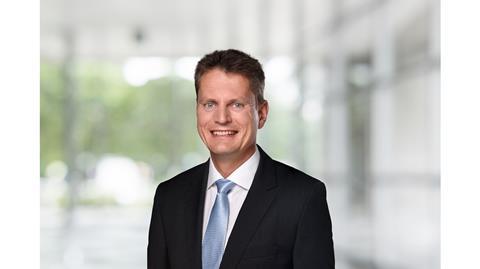Persistently high interest rates and the resulting fall in market values are ‘still a big issue’ for the European real estate investor, according to Gerhard Lehner, head of Germany at Savills Investment Management.

‘They affect all asset classes, but to different degrees,’ he explained, adding: ‘While the risk/return profile in the logistics sector is currently very attractive and there are also attractive investment opportunities at adjusted prices in the residential and food retail sectors, we see a “flight to quality” in the office sector.’
Here, ‘new forms of work require modern office inventory and strategic asset management as well as selective investment strategies’, he suggested. ‘The key criteria in this area are flexibility and user orientation. Good accessibility is extremely important, but so is the recreational quality in and outside the office.’
Looking forward, Lehner said that ‘the question of how investor behaviour will develop’ remained a matter for ‘concern’. He said: ‘We have observed great reluctance among investors to make new investments over the last 18 to 24 months. But there are some who see the current developments as an opportunity and benefit from attractive investment opportunities.’
Lehner suggested, however, that investors were likely to return to the market before too long. ‘Institutional investors, such as pension funds or insurance companies, have an ongoing need for investment opportunities that offer long-term, stable returns,’ he said.
‘There are exciting investment opportunities emerging - particularly in sectors with solid long-term fundamentals and sustainable rental growth, and in properties that fulfil user requirements and ESG criteria.
‘We see attractive investment opportunities at adjusted prices in the residential and logistics sectors and also in the food retail and real estate debt sector. In addition, top offices in central locations in European capitals remain attractive.’










